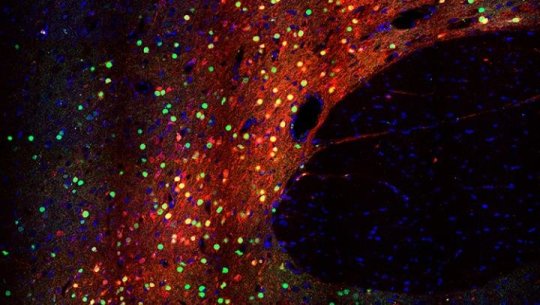[ad_1]
Neuroscientists have used CRISPR/Cas9 genome editing technology to regulate genes in the rat brain. Described in eNeuro, this technique paves the way for researchers to probe genetic influences on brain health and disease in model organisms that more closely resemble human conditions.
Studying genes in the brain is expensive and time-consuming, often relying on transgenic animals, such as fruit flies and mice, designed to assess one gene at a time. Despite rapid advances in the development of powerfully precise CRISPR/Cas9 systems, adapting these for use in the central nervous system has proved challenging.
A neuron-optimized CRISPR activation system developed by Jeremy Day and colleagues overcomes these challenges.
The researchers demonstrate both in diverse cultured cells and in multiple regions of the live rat brain that their molecular tool is capable of quickly and efficiently increasing expression of targeted genes involved in learning and memory, plasticity, and neuronal development.
Story Source:
Materials provided by Society for Neuroscience. Note: Content may be edited for style and length.
[ad_2]















